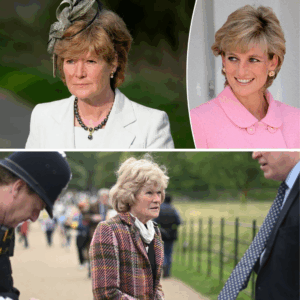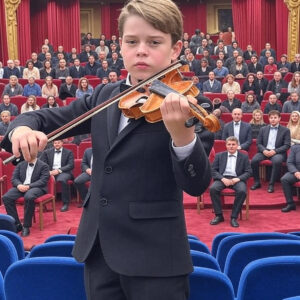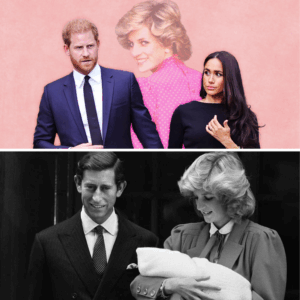The fantasy realm of The Witcher has long been a battleground between purists and adapters, where Andrzej Sapkowski’s intricate tales of moral ambiguity, monster-slaying, and Slavic folklore collide with Hollywood’s drive for spectacle. In a recent uproar that’s rippled across fan forums and social media, the Polish author himself has voiced a stark rebuke: “This is not my Witcher!” His ire targets Netflix’s portrayal of Geralt of Rivia, particularly the transition from Henry Cavill’s brooding embodiment to Liam Hemsworth’s newer iteration, which Sapkowski deems lacking the character’s essential spirit. For Sapkowski, Hemsworth’s Geralt risks reducing the White Wolf to a caricature—a joke devoid of the stoic depth and world-weary soul that defined Cavill’s tenure. This criticism strikes at the heart of a franchise born from books that sold millions, spawned blockbuster games, and now navigates a rocky adaptation path, forcing fans to confront whether Netflix has strayed too far from the source, turning a legendary witcher into a punchline amid creative liberties and casting shifts.
Sapkowski, now 78, penned the Witcher saga in the late 1980s amid Poland’s turbulent post-communist transition, infusing it with gritty realism and philosophical undertones drawn from Eastern European myths. Geralt isn’t your typical hero; he’s a mutated outsider, bound by neutrality in a world of elves, dwarves, and warring humans, quipping dryly while wrestling inner demons. The short stories and novels, like The Last Wish and Blood of Elves, eschew epic quests for nuanced explorations of destiny, prejudice, and the human (or inhuman) condition. Success came slowly—initially serialized in magazines—before exploding via CD Projekt Red’s video games, which amplified Geralt’s gravel-voiced cynicism and swordplay into global phenomena. Sapkowski, ever the contrarian, famously rejected early game offers, only to sue for royalties later, netting millions but underscoring his detachment from expansions. Adaptations? He’s historically wary, viewing them as dilutions of his prose’s subtlety. “Books are books, films are films,” he’s quipped, preferring readers’ imaginations over screen interpretations. Yet Netflix’s 2019 launch promised fidelity, with Cavill’s casting as a coup— the actor, a self-proclaimed superfan, devoured the novels and advocated for lore accuracy on set.
Cavill’s Geralt was electric: scarred, golden-eyed, and radiating quiet intensity. From Season 1’s monster hunts to the political intrigues of later arcs, he captured the witcher’s laconic essence—meditative sword meditations, moral quandaries over coin, and a vulnerability masked by gruffness. Fans adored his commitment; he learned Polish phrases, pushed for practical effects over CGI, and clashed with writers over deviations, like the show’s timeline-jumping structure or amplified romance subplots. Cavill’s exit after Season 3 in 2023 sent shockwaves—officially for scheduling (Warhammer commitments), but whispers of creative frustrations lingered. He poured heart into the role, tweeting lore deep-dives and building custom swords, embodying Geralt’s resilience. For many, his departure felt like losing the saga’s anchor; social media mourned with montages of his medallion glinting in torchlight, lamenting a void no recast could fill.
Enter Liam Hemsworth, stepping into the fray for Seasons 4 and 5 as Netflix pivots toward the books’ later volumes, Time of Contempt and beyond. The Australian actor, known for The Hunger Games‘ Gale and Extraction‘s action-hero grit, brings physical prowess—bulked up for the role, wielding silver and steel with fluid menace in trailers. Yet Sapkowski’s salvo cuts deep: Hemsworth “doesn’t have the soul” Cavill infused, portraying a Geralt “without the spirit,” more action figure than philosopher. The author, in interviews echoing his disdain for visual liberties, argues Netflix’s choices—flashier fights, softened edges for broader appeal—mock the character’s core. Geralt in the books is no quippy Avenger; he’s terse, haunted by mutations that alienate him, navigating a Continent rife with pogroms and prophecies. Hemsworth’s brighter demeanor, per critics, risks sanitizing this: early footage shows a more emotive witcher, grinning amid banter, which some hail as fresh while purists decry as diluted. Sapkowski’s point resonates in a post-Cavill era where the show grapples with identity—Season 3’s mixed reviews cited lore bends, like altered character arcs for Yennefer and Ciri, fueling accusations of “woke” revisions over fidelity.
This isn’t Sapkowski’s first adaptation broadside. He’s critiqued the games for romanticizing Geralt, though he later warmed to their success. For Netflix, his barbs echo broader tensions: the streamer, chasing Game of Thrones-level spectacle, has diverged with ensemble sprawl, magical flares, and subplots amplifying diversity beyond the books’ Eastern bent. Fans split along lines—book loyalists echo Sapkowski, arguing Hemsworth’s “Hollywood handsome” vibe clashes with Geralt’s rugged otherness, while game enthusiasts, who popularized Cavill’s look, fear a stylistic whiplash. Social media amplifies the divide: threads dissect trailers frame-by-frame, with memes juxtaposing Cavill’s brooding stares against Hemsworth’s swings, captioned “Soul vs. Sword.” Petitions to recast surged post-announcement, and viewership dipped for Season 3, hinting at fatigue. Yet defenders point to Hemsworth’s range—his stoic intensity in thrillers suggests untapped depth—and Netflix’s tweaks as necessary for TV pacing, arguing Sapkowski’s prose, dense with asides, demands streamlining.
Delving deeper, the controversy spotlights adaptation’s eternal tug-of-war. Sapkowski’s world thrives on ambiguity: Geralt’s child surprise pact with destiny, his bonds with sorceress Yennefer and lion cub Ciri, unfold through vignettes, not linear epics. Netflix’s early seasons blended timelines for accessibility, introducing monsters like the Striga with visceral flair, but later veered into prophecy-heavy plots that some say prioritize drama over dialectics. Cavill championed corrections—insisting on book-accurate mutations, like cat-like eyes post-conjunction—but clashed over visions of Nilfgaard’s invasion or Triss’s expanded role. His passion mirrored Geralt’s own code: honorable, unyielding. Hemsworth, conversely, approaches with humility, training rigorously and consulting lore, but lacks Cavill’s evangelical fervor. In set photos, he chats amiably with Sapkowski, who gifted a signed tome—gestures belying outright rejection, yet underscoring the author’s preference for the intangible “spirit”: Geralt’s quiet rage against fate, his disdain for kings and gods, distilled in Cavill’s pauses more than Hemsworth’s poise.
Fan reactions paint a polarized Continent. Die-hards, tattooed with wolf medallions, rally behind Sapkowski, viewing Hemsworth as symptomatic of Netflix’s hubris—prioritizing stars over substance, much like the platform’s other fantasy stumbles. Conventions buzz with debates: Does Hemsworth’s accent grate, or evoke Geralt’s wanderer roots? Online, backlash manifests in review-bombs and boycott calls, amplified by Cavill’s enduring popularity—his Instagram teases Warhammer with witcher-esque armor, fueling “what if” fantasies. Conversely, newcomers praise the recast’s vigor; Season 4’s teaser, with Hemsworth slashing through fog-shrouded foes, promises escalated stakes as Ciri’s powers awaken and empires clash. Showrunner Lauren Schmidt Hissrich defends the evolution, emphasizing ensemble growth—Anya Chalotra’s Yennefer blooming into arcane might, Freya Allan’s Ciri embracing elder blood—while nodding to books for closure in the final season.
Sapkowski’s critique, then, transcends casting; it’s a lament for fidelity in an era of algorithm-driven tweaks. He’s long asserted novels outshine screens—”the show can’t match the books’ depth”—and his Hemsworth shade reinforces that. Yet irony abounds: the games, which he once dismissed, birthed Geralt’s modern iconography—white hair, dual swords—adopted by Netflix and Cavill. Hemsworth inherits this hybrid, tasked with bridging book austerity and game bombast. Early buzz from Season 4 screenings hints at promise: tighter narratives, monster lore nods, and Hemsworth’s Geralt grappling solitude amid war’s eve. If he channels the “spirit”—that unflinching gaze into abyss—skeptics may relent. But Sapkowski’s words linger: without soul, it’s not his Witcher.
Ultimately, the saga endures beyond actors. Sapkowski’s Continent, scarred by prejudice and portents, mirrors our divides—fans vs. streamers, purists vs. innovators. Cavill ignited passion, Hemsworth tests resilience. As Season 4 looms, the question isn’t mimicry but essence: Can Geralt’s mutt-like loyalty persist amid change? Netflix bets yes, wielding spectacle as its elixirs. Sapkowski, ever the elder sage, watches from afar, reminding that true witchers forge their path, coin or no. In a world of false trails, the books remain the unerring map—timeless, untamed, and unequivocally his.





